Featured Stories, MIT Media Lab Open Oceans Initiative, News | February 28, 2018
Inspiration, Education, and Exploration at the Open Ocean Symposium
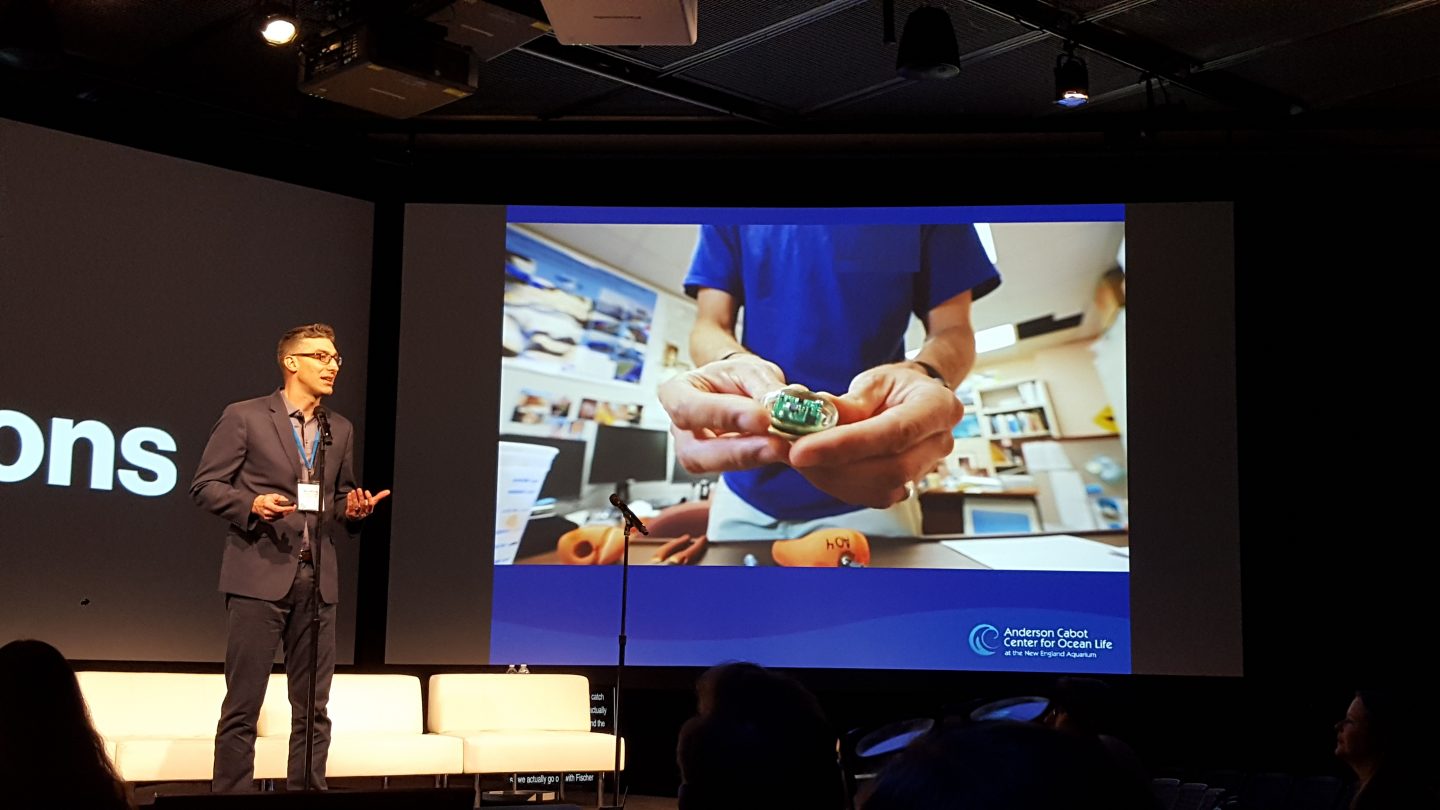
By
The New England Aquarium was proud to collaborate with the MIT Media Lab and National Geographic on the latest Open Ocean initiative event. Here Be Dragons brought together scientists, students, innovators, explorers, storytellers, and even some of our own Anderson Cabot Center researchers—in the name of ocean science, conservation, and exploration.
During a panel discussion titled Our Thriving Ocean, Dr. John Mandelman, Anderson Cabot Center chief scientist and vice president, talked about the need for a strong foundation of scientific research and data.
“We can not protect what we don’t understand,” said Mandelman.
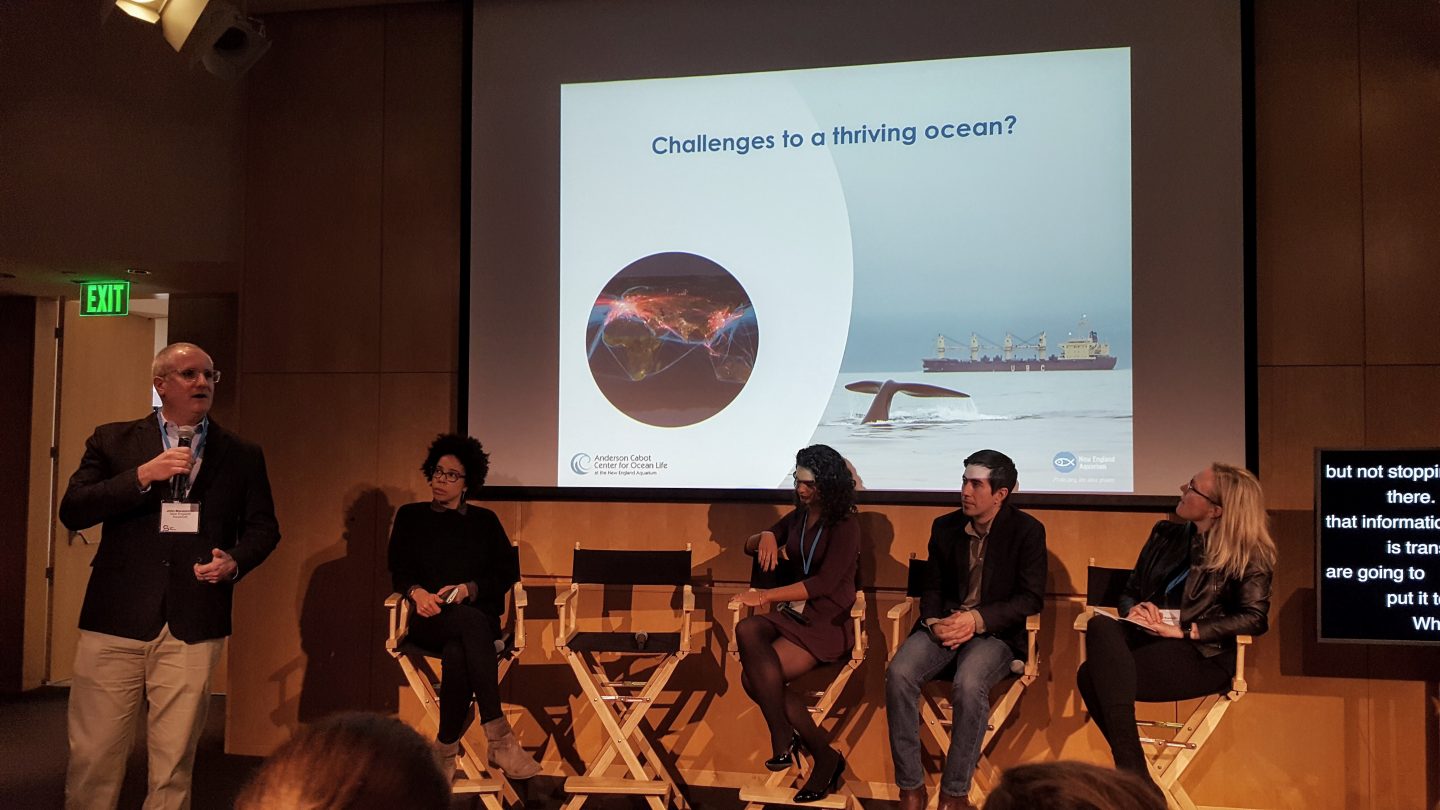
He, and the other insightful panelists highlighted the importance of collaborations as we work to protect and improve the health of our global oceans.
“It’s all about working together. It is absolutely vital that we work together to drive solutions,” said Mandelman. “It’s a marathon, not a race.” These collaborations shouldn’t just be within the scientific community, but with on-the-ground stakeholders as well, he said.
“I think we need to open our eyes and get out of our own way… and see what others see and use that combined perspective in order to drive change,” said Mandelman.
The day also included presentations by two former fellows of the Marine Conservation Action Fund—Asha de Vos, founder of Oceanswell, and Shah Selbe, founder of Conservify. The two spoke about their work, their visions for the future, and their hopes for the oceans as part of the Democratizing the Ocean panel.
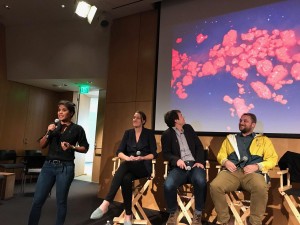
“My dream is that everyone will talk about the ocean at least once a day,” said de Vos. “I want people to gossip about the ocean.”
New England Aquarium Explorer in Residence and renowned environmental photographer Brian Skerry talked about a life documenting the oceans during the Sea Stories panel discussion.
“I need to understand the science, but what I’m really trying to capture is the poetry. Because an image can resonate with people viscerally and stay with them forever,” said Skerry—an important message for inspiring efforts in marine conservation.
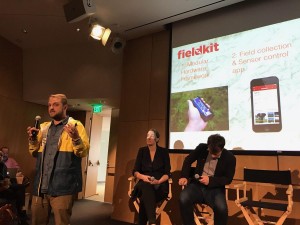
The day also featured two sets of Lightning Talks, during which scientists had three minutes to share the science they’re passionate about. Featured were Anderson Cabot Center Vice President and Senior Science Advisor Dr. Scott Kraus, who spoke about wildlife in an industrial ocean.
“We don’t actually know what these animals need to survive,” said Kraus. How can we know how animals are affected by change and industrialization if we don’t know what critical ecosystems they require to thrive?
Dr. Nick Whitney, senior scientist and head of our Fisheries Science and Emerging Technology (FSET) program, used his three minutes to talk about sharks, their populations, and tagging.
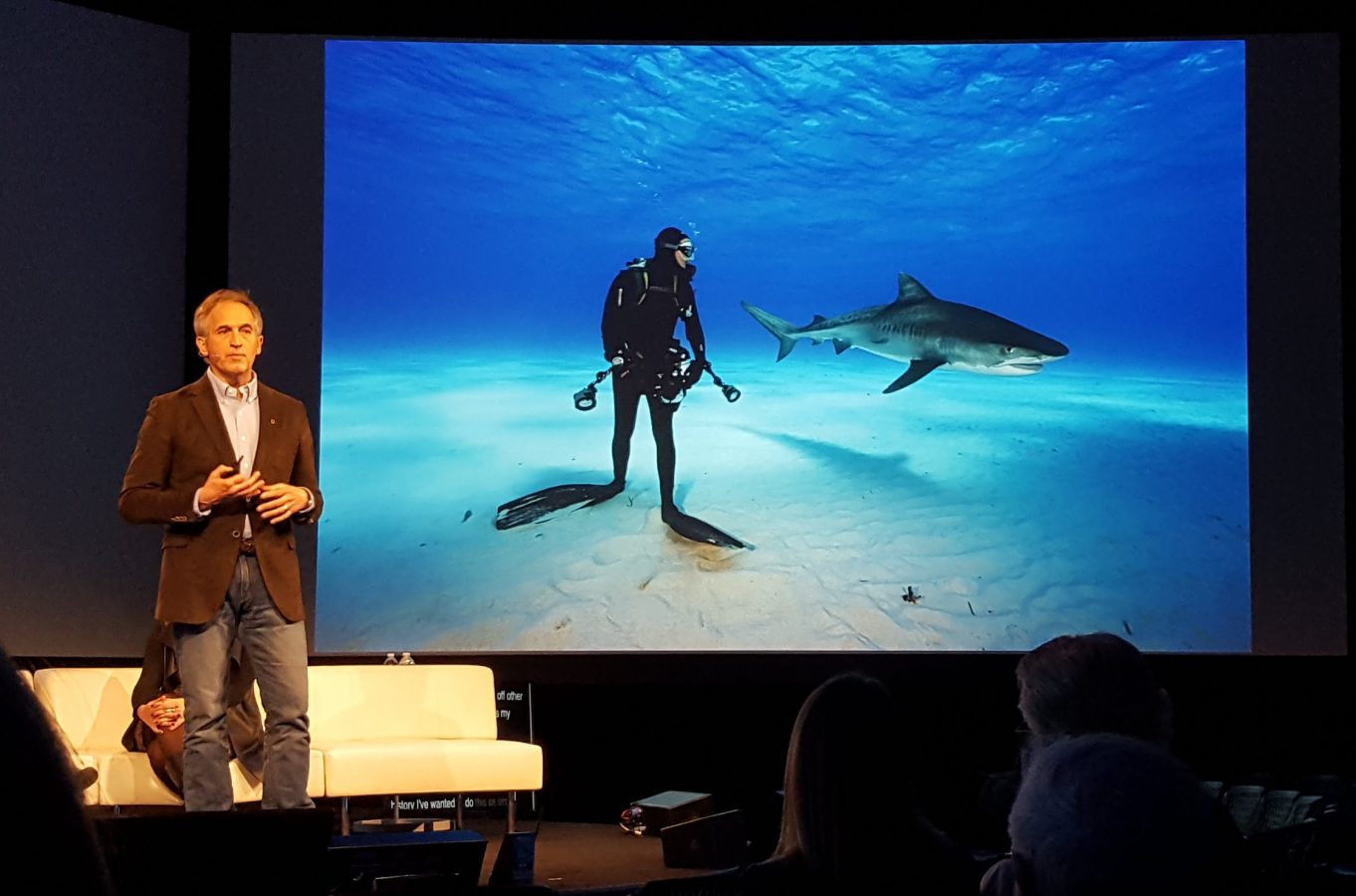
The second day harnessed the excitement and passion of the speakers and presentations of the first day of the symposium in an effort to effect real change. With only one day to developing projects and ideas, teams of National Geographic Explorers, students, and researchers pitched their projects at the New England Aquarium on Tuesday evening.
The teams developed insightful projects, from laser-mapping systems to museum exhibition ideas that utilize new and emerging technologies and address gaps in our understanding and sharing of the ocean. Some projects will be selected for “Rapid Field Deployments” and support from National Geographic.




